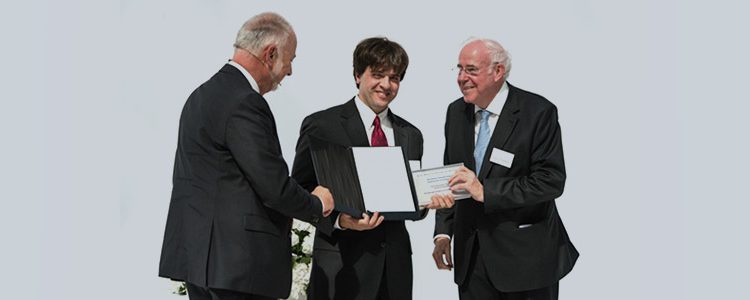Karl Deisseroth Takes the 2017 Else Kröner Fresenius Prize

Image credits: Natalia Kepesz via ekfs.de
Prof. Karl Deisseroth, of Howard Hughes Medical Institute and Stanford University, is the recent winner of the Else Kröner Fresenius Prize. This Prize is given once every four years and has a total value of €4 million. Prof. Deisseroth has won many other science awards, including the Massry Prize, the Dickson Prize in Medicine, and the Keio Medical Science Prize. The Fresenius Research Prize was given specifically for his contributions to optogenetics, CLARITY, and his research in the neural circuit basis of depression.
Dr. Karl Deisseroth is based at Stanford and is a neuroscientist and practicing psychiatrist involved in psychiatric disorders research. The Stanford psychiatrist pioneered optogenetics, in which light is used to precisely control neuronal activity in animals which can move freely. It involves inserting genes for light-sensitive proteins into neurons. This allows researchers to control the cells’ signaling activity with a pulse of laser light. Turning cell signals on and off allows scientists to determine the role played by a set of neurons in the brain.
The award given to Prof. Deisseroth was also for his work in hydrogel-tissue chemistry. His lab developed CLARITY, a hydrogel method that makes intact tissue samples or even whole organs of small animals transparent. The tissue’s fatty substances make it opaque. CLARITY involves replacing the fatty tissue with a hydrogel that allows light transmission and enables large molecule transit (such as labeled antibodies or oligonucleotides) which can help to identify if certain proteins or DNA sequences are present in the tissue.
He also has an interest in psychiatric disorders. His active psychiatric practice has motivated him to understand the basis of these disorders. CLARITY and optogenetics are methods that he and his team have used to understand psychiatric disorders and also to identify the neural circuits involved in various aspects of depression including anhedonia and hopelessness.
The Else Kröner Fresenius Prize is given once every four years by the Else Kröner Fresenius Foundation. The foundation also promotes the training of medical personnel active in dialysis, health care, or nursing. Prof. Karl Deisseroth’s award will be split between research (€3.5 million) and his personal use (€500,000). The Else Kröner Fresenius Prize is a fitting way to honor Prof. Deisseroth’s many scientific achievements.








